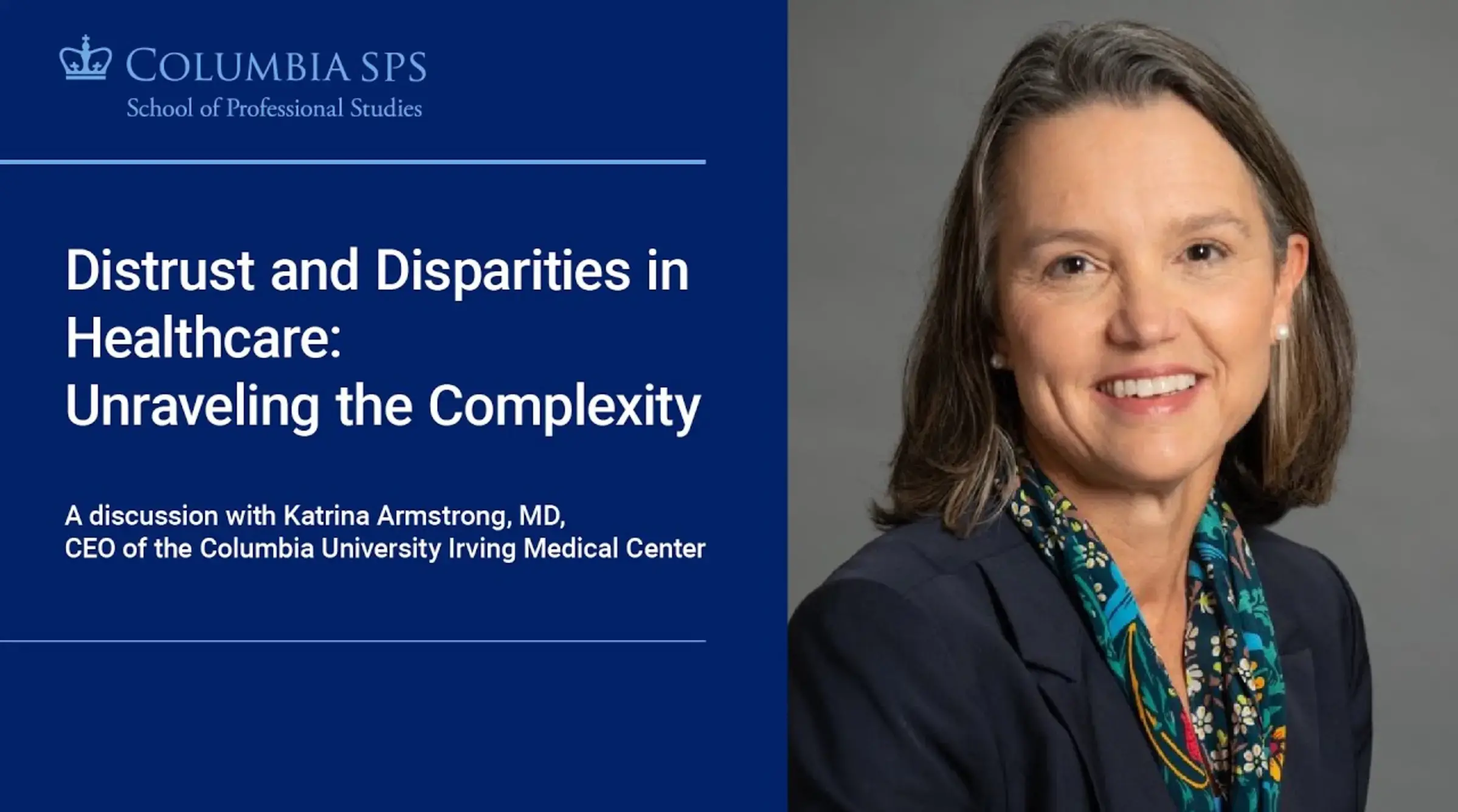By Jaideep Salil
The Columbia M.S. in Bioethics program hosted a talk on Nov. 9, “Distrust and Disparities in Health Care,” with Dr. Katrina Armstrong, the newly-appointed chief executive officer of the Columbia University Irving Medical Center (CUIMC) and dean of the faculties of Health Sciences and the Vagelos College of Physicians and Surgeons.
The Columbia M.S. in Bioethics program hosts several events throughout the year with industry experts, academics, and faculty, some of which are eligible for Continuing Legal Education (CLE) credits. The discussions, webinars, and talks cover not only fundamental concepts in bioethics but current challenges and debates. Topics have covered the legal questions of disclosure and confidentiality post-Dobbs v. Jackson; global COVID-19 vaccine distribution; and distrust and disparities in healthcare. Past guest speakers include: Dr. Anthony Fauci, Director of the National Institute of Allergy and Infectious Diseases; Elizabeth J. Chuang, M.D., Clinical Researcher, Montefiore Health Center; and Sheldon Sloan, M.D., Vice President, Arena Pharmaceuticals, Inc.
Dr. Robert Klitzman, program director of the Bioethics program and professor of psychiatry at CUIMC, welcomed Dr. Armstrong, who shared insights from her thirty-year career researching the topic. Highlights follow.
For almost every disease with a course of treatment, substantial disparities persist across race, ethnicity, and socioeconomic status. It all comes down to trust, said Armstrong. Trust in medical care is grounded in the belief that a doctor and/or facility will act in your interest, comprising two primary domains: technical competence and values. The U.S. health-care system, however, has a “long history of acting against the interests of minority patients,” Armstrong explained. That directly feeds distrust, which is associated with lifelong health problems, she added. Although research shows that distrust in physician competency does not vary much across racial groups, there is significant variation in beliefs about honesty, motives, and equity within the health-care system.
A solution: designing health policy with a focus on equity is vital to eliminating disparities in health care. In addition to improving ties between hospitals and the communities they serve, health-care practitioners should constantly practice reflexivity, Armstrong said. Practitioners should often ask how they can become more anti-racist at an individual and organizational level or how they can address discrimination in all forms. Doing so is not just a moral obligation, Armstrong said, but is also imperative for conducting robust, ethical medical research and providing the best clinical care. It is a task that we must approach with a “deep sense of humility,” she concluded.
Watch the entire conversation.



